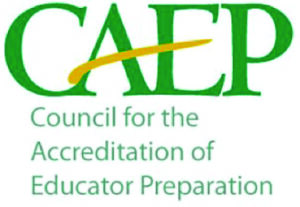
Online Master’s in Higher Education
Want to learn more? Speak with a graduate admissions counselor.
The education landscape is changing, and earning a Master of Arts in Higher Education degree equips you to make effective administrative decisions as you advance into management roles at universities and colleges. Caldwell University’s online graduate degree in Higher Education also prepares you to pivot into a rewarding higher education career.
Program Highlights
Caldwell’s flexible Master’s degree in Higher Education is offered completely online, allowing you to pursue your career and educational goals simultaneously. With our seven-week modular courses, you can begin the program without waiting for the next semester or academic year. In addition, our online, 36-credit Master’s in Higher Education program is quite affordable at $735 per credit hour.
Our graduate degree in Higher Education is designed to offer a generalist perspective on college and university administration, yet you can specialize your capstone in a particular area. Depending on your career plans in higher education, you may specialize your graduate studies in student affairs, enrollment management, resource management, and human resources, as well as focus on public, private, or Catholic institutions.
According to 2023 data from the Bureau of Labor Statistics, New Jersey, Delaware, and New York are the top paying states for Postsecondary Educational Administrators. In locations where more students are enrolling at colleges and universities, this occupation is likely to see growth.
In addition to offering this online master’s in Higher Education, Caldwell’s Department of Education offers a variety of degrees and professional programming, including various post-master certificates and an Ed.D. or Ph.D. in Educational Leadership.
Master’s in Higher Education Admissions
The admission requirements for our Master of Arts in Higher Education program include:
- Bachelor’s degree or higher with a minimum cumulative GPA of 3.0
- Complete the Graduate Caldwell University Application
- Official undergraduate/graduate transcript(s) from accredited institution(s). Official electronic transcripts are welcome if the transcripts are sent to us by the institution or an approved third party such as Parchment or National Student Clearinghouse.
- Two (2) letters of recommendation for graduate study, preferably from former professors or current employer
- 1-2 page personal statement on why an applicant wants to earn a MA in Higher Education
- Personal interview, if necessary
Supporting documents for a graduate application can be emailed to graduate@caldwell.edu or sent by mail:
Caldwell University
Office of Graduate Admissions
120 Bloomfield Avenue
Caldwell, NJ 07006
Program Retention in the Department of Education
Students may only earn one grade below B in a graduate level course. This course may be repeated once to earn a higher letter grade. Any student who receives a grade below B in a second graduate level course will be dismissed from the program. Some courses are assessed as PASS/FAIL. A grade PASS is equivalent to the grade B or better.
All Department of Education program requirements are subject to change based on the New Jersey Department of Education regulations. For the most current information, please consult the Caldwell University Department of Education page.
Earn your Master’s in Higher Education through Caldwell
Caldwell University’s online Master of Arts in Higher Education degree provides a comprehensive administration overview to further your career as a higher education professional. This flexible master’s program also allows you to choose the area of higher education to specialize in.
Ready to get started? Request information to learn more or apply now.


